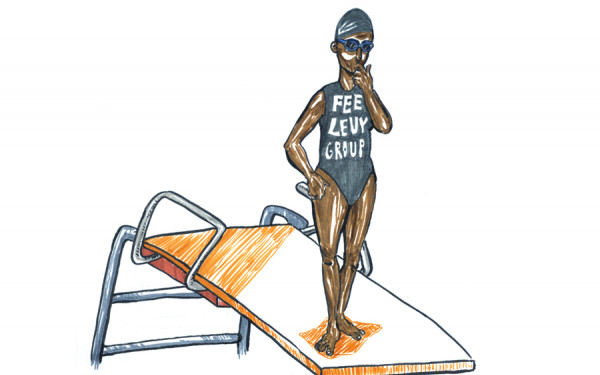L’Organe Failure
Funding Suspended to Concordia’s Defunct French-Language Magazine
Over two years after its last publication and despite two attempts to revive it, Concordia’s former French-language magazine L’Organe has had its fee levy suspended for three semesters—and it will be permanently removed unless students decide to bring the magazine back.
L’Organe’s six-cent-per-credit fee levy that it has received from Concordia undergraduates since 2003 was officially suspended by the university’s Board of Governors Dec. 11, roughly 30 months after the magazine published its last issue.
In April 2011, the magazine experienced a mass exodus of sorts when its masthead members largely quit or had finished their mandate and were thus unable to return the following year.
Students tried twice to revive the publication, but both attempts were unsuccessful.
Julien Poirier-Malo served as president of the defunct fee-levy group in 2012-2013 and spearheaded the most recent attempt to restart L’Organe, which he says was beset by setbacks, particularly in acquiring access to the group’s funding from students.
“I took over L’Organe in the summer of 2012 after a year abroad. It had been on the ice for over a year already, and I decided to bring it back to life,” he said.
“From June to September, I recruited contributors from various fields, and we began to work on the first issue.
“While all of this was going on, the bank account was still under [former general manager Gabrielle LeFort]’s name, and I didn’t have access to any money,” Poirier-Malo explained. “We had time to almost finish the issue before the administrative procedure started.”
That’s when Poirier-Malo ran into trouble.
“Weeks later, the bank contacted me to tell me that the [organization’s file in the provincial enterprise register] had not been updated for over five years, and that the account should not have been open to anyone since then, including Gabrielle,” he said.
“In other words, they discovered a huge flaw in their own system. I then tried to find the 2007 [editorial staff] and bring them together to sign governmental documents in order to update the [register], in order to have the [TD Bank] account under my name.”
In April 2013, Poirier-Malo was graduating and had to abandon the project after months with no results.
“It was a real nightmare,” he said.
The university collects fee levies per credit from undergraduates and helps dole them out to fee-levy groups. Only the Board of Governors has the authority to suspend or revoke a fee levy, and Concordia continued collecting L’Organe’s fee levy after the magazine folded.
During discussions at the Board of Governors’ December meeting, Concordia Student Union president and undergraduate BoG representative Melissa Kate Wheeler indicated students would decide what to do with the collected funds currently sitting untouched.
She told the Board it would be the “next year’s exec’s problem” to deal with because her team had no interest in putting it to ballot in the upcoming CSU general elections taking place in March.
She told The Link it is up to students at large to mobilize if they want to see L’Organe born anew, and that for now the CSU will only continue to ensure the funding is collected by Concordia’s Dean of Students office and kept safe.
“We don’t have any intention at the moment of putting it to referendum because this fee levy has only been suspended, not eradicated,” she said, adding the union plans to spend the outstanding fee levy account on a future French publication, or as otherwise decided by referendum.
“Since its suspension, a few students have come forward saying that in fact there should be a French newspaper on campus—and I tend to agree—so what might end up happening if those students are serious and they want to start organizing then we can always keep that sum safe with the university […] and after three semesters we could reinstate the fee, potentially,” she said.
How much money the L’Organe fee levy has collected in the absence of any publishing is unclear; according to Concordia spokesperson Chris Mota, the university acts as fiduciary for the student group’s accounts and therefore cannot reveal their contents.
The CSU, which does have to divulge the financial information, was unable to provide L’Organe’s finances before press time.
Poirier-Malo says it is important for an English-speaking school in a bilingual city to have media in the province’s predominant language and that he hopes to see the publication return.
Wheeler agrees.
“Its value in an academic institution is undeniable,” she said. “I would love to see it resurface, I really would, and if anybody’s interested then they should certainly come to us for help organizing.”






_600_375_90_s_c1.jpg)
__600_375_90_s_c1.jpg)